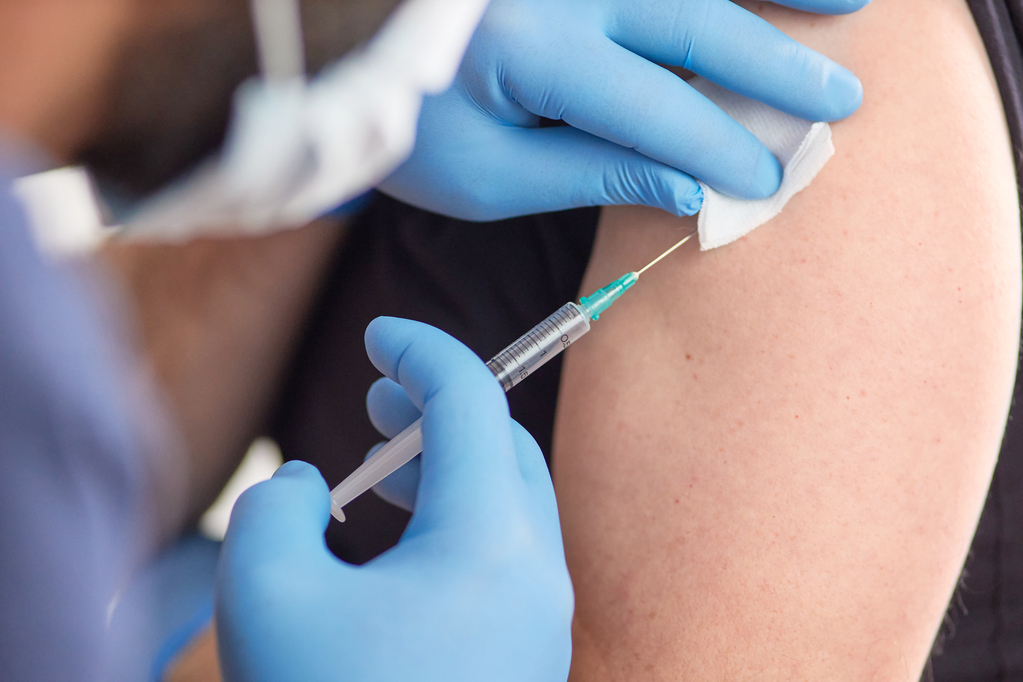At the start of the European Immunization week, the European Centre for Disease Prevention and Control (ECDC) released two reports on Monday on the need to fill gaps in the vaccination coverage against polio and measle in Europe.
The European Immunization Week is marked across Europe every year in the final week of April. It aims to raise awareness of the importance of immunization for the general health and well-being of the European and wider population, among others because of lack of access to vaccines or vaccine hesitancy due to disinformation.
The ECDC poliomyelitis situation update reveals that between 2012 and 2021, approximately 2.4 million children in the EU/EEA may have not received three doses of polio-containing vaccines on time. Additionally, the ECDC Measles Annual Epidemiological Report 2022 highlights the risks when having pockets of an under-vaccinated population or groups not immunized at all.
“As long as there are non-vaccinated or under-vaccinated population groups in European countries and polio is not eradicated globally, the risk of the virus being reintroduced in Europe remain,” warned EDCD Director Andrea Amnon.
“Furthermore, in the case of measles, which is highly transmissible, the virus can find its way to spread in pockets of unprotected populations when vaccination coverage is sub-optimal. This may lead to outbreaks that can create a burden on health systems, including in countries that have eliminated measles.”
There are significant vaccination gaps and disparities between vaccination coverage among different countries and regions. Although the figures are relatively low and have not led to sustained outbreaks, several EU member states have seen new cases and outbreaks because of insufficient vaccination. The poliovirus still circulates in some non-EU countries and is known to mutate.
As regards measle, 127 new cases have been discovered, with the highest number in Austria and single digit numbers of cases in several other countries. The only way to protect the whole population against measle is to achieve a high overall two-doses vaccination rate of at least 95 %. This is not the case in all countries or among vulnerable groups such as migrants.
Data show that infants below one year of age remain the group with the highest incidence of measles, as they are too young to be vaccinated and should therefore be protected by group immunity.
While vaccination proved its power during the COVID-19 pandemic, it also led to disruption in regular vaccination schemes and less contacts with physicians, although the challenges predated the pandemic, she explained at a press conference.
The ECDC Director told The Brussels Times that additional vaccination information can help to increase the vaccination rates and that it is important to integrate migrants with children in the national health care systems from the very start of their arrival. The policy is based on three C model on overcoming the barriers that reduce vaccination uptake: confidence, complacency and constraints.
The European Commission, WHO Europe and UNICEF observed also the start of the European Immunization Week in a joint statement. Together they “continue their support to ensure children and families have timely access to important routine vaccinations and catch up on any missed doses. This is essential to prevent the return of highly contagious vaccine-preventable diseases.”
Among others, the war in Ukraine and earthquakes in Turkey have caused further disruptions to health services, displaced millions of families, and made access to life-saving vaccines much harder.
The statement underlines that vaccination is a cornerstone of public health. “Every dose in a country’s national immunization schedule is timed to build or sustain protection from one or more diseases. Every missed or delayed dose puts someone at greater risk of infection. This can be particularly dangerous for young children and the most vulnerable in our communities.”
Information about national vaccination schedules in the EU member states can be found in the European Vaccination Information Portal.
The Brussels Times

